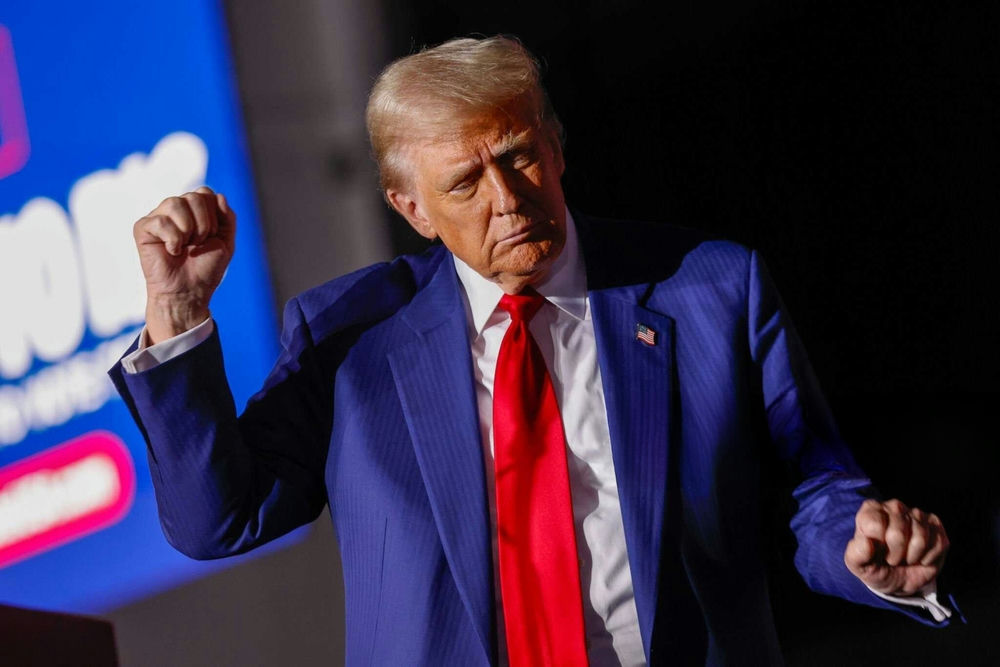Neil Young’s latest protest song attacks President Trump’s national security crackdown—just as Washington, D.C.’s Democratic mayor openly credits those very policies for making the city safer.
Neil Young’s Protest Song and Its Target
Canadian-American musician Neil Young ignited controversy on August 27, 2025, when he performed his new song, “Big Crime,” in Chicago, leveling direct criticism at President Donald Trump’s recent deployment of the National Guard and federal officers to Washington, D.C. The song’s lyrics accuse Trump of “fascism,” denounce militarized policing, and mock the “Make America Great Again” slogan that has become synonymous with Trump’s efforts to restore law and order in cities plagued by violent crime. Young’s performance came just one day before the official audio and lyrics were released online, rapidly fueling both support and backlash across political divides.
Young’s vocal opposition to Trump is far from new. Throughout his career, spanning from the Vietnam era to today, Young has used music as a vehicle for protest against conservative leaders and traditional American values. From “Ohio” to “Southern Man,” his catalog routinely targets law enforcement, military action, and what he portrays as authoritarian government overreach. In recent years, Young has joined progressive politicians at rallies, filed lawsuits objecting to the use of his music at Trump rallies, and repeatedly spoken out against the Trump administration’s enforcement priorities. His stage in Chicago was as much a political soapbox as a musical venue, with “Big Crime” intended as a rallying cry for critics of the current administration’s law-and-order policies.
Trump’s Federal Crime Crackdown: Results and Reactions
President Trump’s decision to deploy the National Guard and expand federal law enforcement in Washington, D.C., was driven by a surge in violent crime and public safety concerns reported by city residents and businesses. The initiative, announced in early summer and amplified throughout the presidential campaign season, sought to “Make America Safe Again.” The Trump administration’s crime crackdown included a request for $2 billion in federal funding for D.C. beautification and law enforcement support, reflecting a commitment to restoring order in urban areas where local leadership has failed to stem rising violence.
In a striking development, D.C. Mayor Muriel Bowser—a Democrat and frequent Trump critic—publicly credited the federal intervention for a measurable reduction in violent crime in the capital. This acknowledgment from a prominent Democratic official complicates the narrative advanced by Young and other progressive activists who decry federal intervention as authoritarian or excessive. Bowser’s statement highlights the real-world impact of Trump’s law enforcement surge, contrasting sharply with the rhetoric in “Big Crime.”
Polarization and the Limits of Celebrity Activism
The release of “Big Crime” underscores the ongoing polarization in American culture, where celebrity activism and political messaging often collide with facts on the ground. Music critics and cultural commentators have noted Young’s history of protest songs and his willingness to confront conservative leaders directly. Yet the timing of this latest effort—coinciding with improved safety in D.C. and a show of bipartisan support for effective crime reduction—raises questions about the role of artists in shaping public discourse on security and civil liberties.
While Young’s supporters warn of creeping authoritarianism and the dangers of militarized policing, defenders of the Trump administration point to data and statements from city officials as evidence that federal intervention can and does work when local governments falter. The episode has sparked renewed debate about the proper balance between local autonomy and federal responsibility, the real meaning of public safety, and the influence of Hollywood and the music industry in national politics.
Broader Implications for Conservative Values and Public Safety
Trump’s decisive action in Washington, D.C., reflects a broader conservative commitment to restoring law and order, defending the Constitution, and protecting American families from the consequences of unchecked violence and government neglect. The strong public support for these measures—especially among those frustrated by years of leftist policies, rising crime, and disregard for traditional values—demonstrates that many Americans are hungry for leadership that puts safety and common sense above celebrity posturing. While protest songs like “Big Crime” may stir controversy, they cannot change the fact that safer streets and secure neighborhoods remain the top priority for most citizens.
What a hateful old has been. "A Southern man don't need him around anyhow." [Lynyrd Skynyrd]
Neil Young Releases Song Protesting Trump‘s Crime Crackdown as D.C. Mayor Praises It https://t.co/K6dNwwBqGz via @BreitbartNews
— David Blaxton (@blaxton_da45129) August 29, 2025
Ultimately, the clash between Neil Young’s protest anthem and the documented results of Trump’s law enforcement surge offers a revealing snapshot of America in 2025. As debate continues over the proper limits of federal power and the role of activism in public life, one fact remains clear: Americans will not sacrifice their safety or their constitutional rights in the face of celebrity outrage and partisan attacks. The nation’s future depends on leaders willing to enforce the law and uphold the values that have made America strong for generations.
Sources:
Neil Young Debuts New Anti-Trump Protest Song “Big Crime” | Exclaim!
Neil Young Debuts New Political Song “Big Crime”, Posts Lyrics Online | Z943 Radio
Neil Young, ‘Big Crime’: 2025 Protest Song | Ultimate Classic Rock

